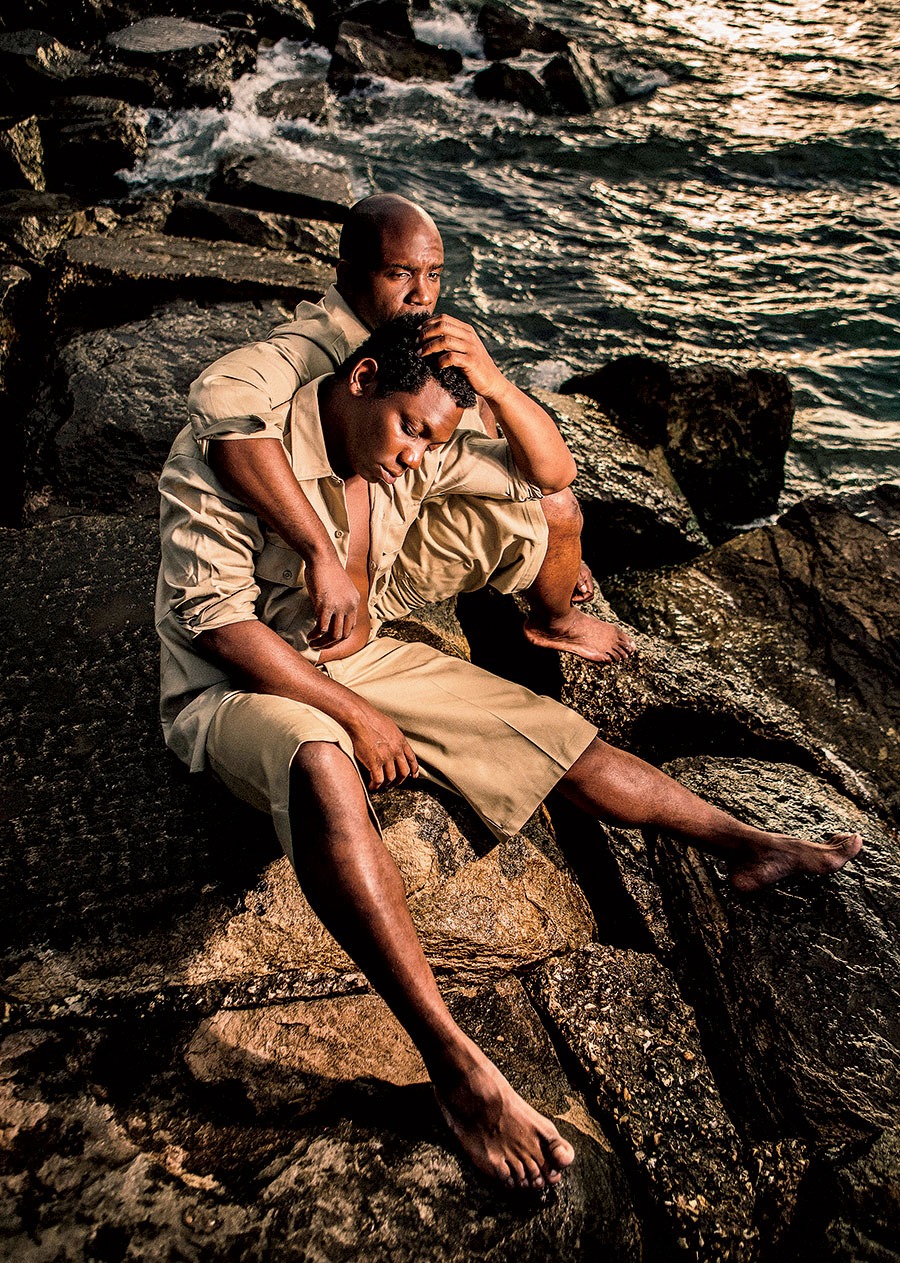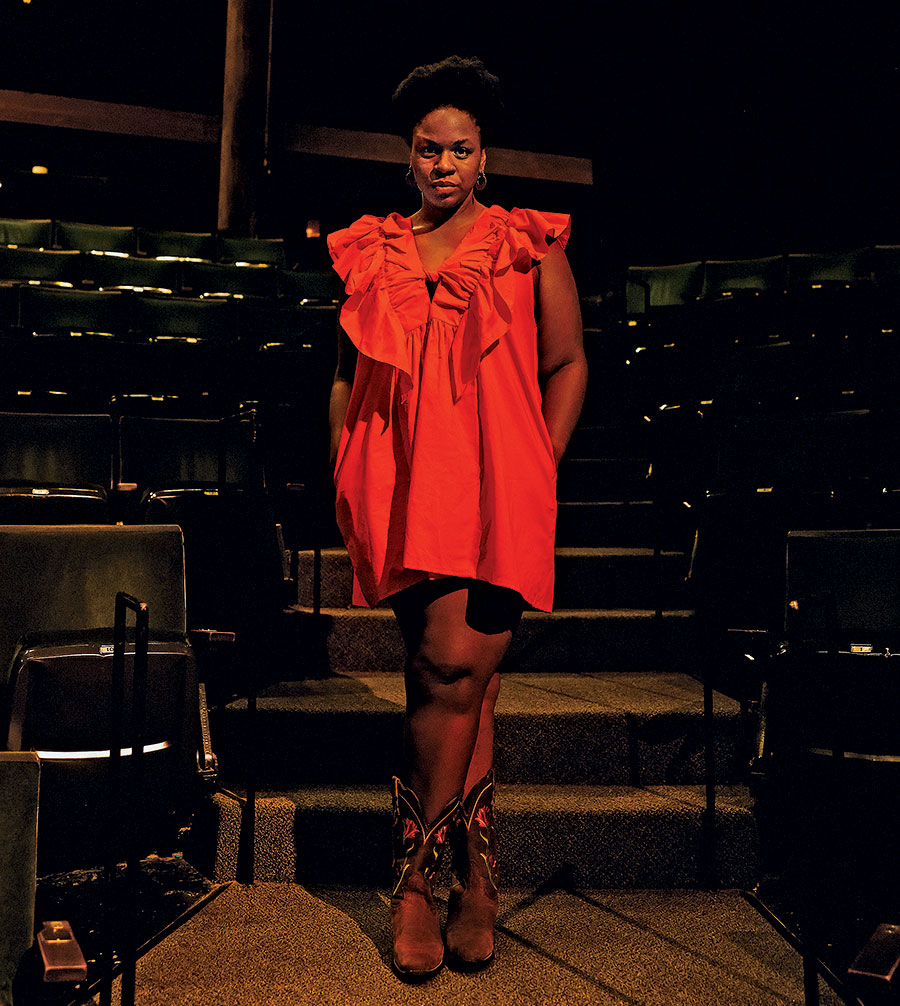In the 1973 drama The Island, a pair of Black political prisoners endure hard labor while endeavoring to mount a two-man version of Sophocles’s Antigone for their fellow inmates. Written by Athol Fugard, a white South African whose best-known works opposed apartheid, and actors John Kani and Winston Ntshona, who originally portrayed the prisoners, the play is set on Robben Island, the infamous prison compound where Nelson Mandela was incarcerated at the time. It alternates between scenes of the two men futilely shoveling never-ending piles of sand and rehearsing scenes from their bare-bones adaptation of Antigone, in which the title character is punished for refusing to comply with her uncle Creon’s unjust laws.
That urge toward resourceful protest in the face of severe hardship speaks to Gabrielle Randle-Bent, who is directing a new production of the play at Hyde Park’s Court Theatre (November 11 to December 4), featuring actors Ronald L. Conner and Kai Ealy. She uses a term she says she coined while in grad school at the University of Texas at Austin — “collard-green creativity” — to make the point that The Island resonates with the American Black experience as much as the South African one.
She explains: “We’re people who were given leftovers and made, arguably, the only national cuisine of this country. Like, collard greens were supposed to be trashed. And so what does it mean to take things that we’re told we’re supposed to throw away, and use them for our liberation, for our nourishment, and for our survival? That’s always the question I’m asking. And that’s what The Island is.”
The Island marks Randle-Bent’s first production at Court since being named its associate artistic director in July, as well as her solo directorial debut there. (Not coincidentally, her next production at Court, in the 2023–24 season, will be a full staging of Antigone.) She’s coming off a high-profile project: codirecting 1919, an adaptation of Eve L. Ewing’s poetry collection about the Chicago race riot, at Steppenwolf Theatre Company this fall.

Randle-Bent, who is in her mid-30s and describes herself as “a Texan by birth and by nature,” discovered theater as a high school student in the Arlington–Fort Worth area. “I just thought I was helping the drama teacher,” she says, “but what I was doing was being an assistant director.” After arriving in Chicago to pursue a doctorate at Northwestern, she joined Court in 2019 as its first research fellow and has served as a dramaturg on several productions, all while teaching courses at the University of Chicago, with which the theater is affiliated. Last season, Randle-Bent codirected Court’s staging of Othello with the company’s longtime artistic director, Charles Newell.
“I was so excited to get to know Gabby over three or four years before then offering her the associate position,” says Newell, “because I recognize that she’s a scholar, she’s an artist, she’s a community builder, she’s a place maker. There are just so many things that she is highly skilled at that we needed.”
Court has been moving toward a more inclusive definition of “classic theater,” and Randle-Bent will be helping it to focus that effort and to foster more community engagement. She wants to make Court “a place where theater is as useful as a Sunday dinner at my big mama’s house — useful for building community, nurturing culture, tying history to the present,” she says. “So much of my relationship with Court has been asking annoying questions like ‘What is a classic?’ and ‘Who gets to decide?’ There is a lot of work that happens here that is tied to Greek storytelling — and that has been done in beautiful, thoughtful ways. But there is always the question of what does that have to do with us in this moment? What does that have to do with the Blackness and the Black people that make the South Side and Hyde Park what they are?”
A similar question is at the heart of The Island. “In the heat, the hottest heat, the 1973-ness of apartheid South Africa, these men figured out how to make Antigone, right?” Randle-Bent says. “And they said, ‘Actually, we’re going to take this, and we’re going to turn it into a trial, and just so you know, you’re the bad guy.’ ”



